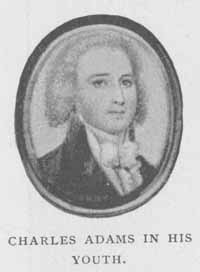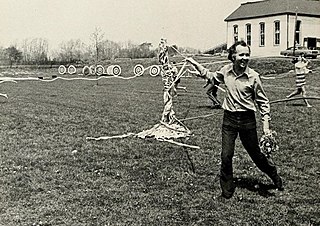Related Research Articles

A campus is by tradition the land on which a college or university and related institutional buildings are situated. Usually a college campus includes libraries, lecture halls, residence halls, student centers or dining halls, and park-like settings.

Tufts University is a private research university in Medford and Somerville, Massachusetts, with additional facilities in Boston and Grafton, as well as in Talloires, France. It was founded in 1852 as Tufts College by Christian universalists who sought to provide a nonsectarian institution of higher learning. Tufts remained a small liberal arts college until the 1970s, when it transformed into a large research university offering several doctorates.

Harvard Yard, in Cambridge, Massachusetts, is the oldest part of the Harvard University campus, its historic center and modern crossroads. It contains most of the freshman dormitories, Harvard's most important libraries, Memorial Church, several classroom and departmental buildings, and the offices of senior University officials including the President of Harvard University.

Streaking is the act of running naked through a public area for publicity, for fun, as a prank, a dare, a form of protest, or to participate in a fad. Streaking is often associated with sporting events, but can occur in more secluded areas. Streakers are often pursued by sporting officials or the police.

The Aggie Yell Leaders are a group of Texas A&M University students that lead Aggie fans in a series of "yells" during athletic events or other school events. The Yell Leaders are composed of five students who are elected annually by popular vote of the student body.
Midnight Yell Practice, known locally as Midnight Yell or Yell Practice, is a tradition at Texas A&M University. Midnight Yell is similar to a pep rally. On the night before each home football game, Midnight Yell takes place in Kyle Field at midnight; two nights before each away game, a Yell Practice is held near the Quadrangle on the south side of campus. At midnight on the night before an away game Midnight Yell is held in or near the opponent's city.

The Princeton University Band serves as the marching band and pep band of Princeton University. Like most other Ivy League bands, it is a scramble band. To members and fans, it is often known as the PUB or simply The Band. Many alumni refer to it as the Tiger Band.
Cornelliana is anything related to Cornell University, an Ivy League university founded in 1865 in Ithaca, New York, United States. The university has a considerable number of traditions, legends, and lore unique to the university that have developed over its existence, which spans over 150 years.

The Columbia University Marching Band (CUMB) was the marching band of Columbia University. Founded in 1904, it claimed to be the first college or university marching band in the United States to convert to a scramble band format, making the switch in the 1950s. Today, all of the Ivy League bands, as well as the Stanford Band, William & Mary Pep Band, and Marching Owl Band have adopted the scramble band style. There were 60 members in 2019.

The traditions of Texas A&M University are a key aspect of the culture of Texas A&M University. Some of the school traditions date to the 1890s, shortly after the opening of the school, while others have been introduced more recently. These traditions encourage current students and alumni (Aggies) to cultivate the Aggie Spirit, a sense of loyalty and respect for the school, and dictate many aspects of student life, including how to greet others, how to act at an A&M sporting event, and what words a student may use in conversation. The most visible tradition among senior class students and alumni is the wearing of the Aggie Ring, whose design has been relatively unchanged since its introduction in 1894. Not all Aggie traditions are recognized by the university, and some, like Bonfire, have been discontinued for safety reasons. Texas Monthly states that the students' respect for school traditions and values is the university's greatest strength.
Elephant Walk is a tradition at Texas A&M University in which the senior class walks around campus to remember the good times they had at Texas A&M. This tradition generally takes place the week before the last regular-season football game, which before A&M's 2012 move to the Southeastern Conference was the Texas game. It signifies the last time that the seniors will stand as a part of the 12th Man student corpus.
Revision week is a period in the UK and other Commonwealth countries preceding examinations in high schools, higher education institutions, and military colleges. In American colleges, this period is known as a Reading Period. Generally, this period is one week long and free of classes or assessment, permitting students to spend the period revising material, generally in preparation for final exams. With the exception of Canadian post-secondary institutions, is not often allocated for mid-semester or ongoing assessment. Each day of such a period may be referred to as a reading day. Hell week is used in many similar educational contexts, such as police or military training.
The traditions of Dartmouth College, an American Ivy League college in Hanover, New Hampshire, are deeply entrenched in the student life of the institution and are well known nationally. Dartmouth's website counts the college's "special traditions" among its "essential elements", and in his inauguration address, former College president James E. Wright said that the school is "a place that is marked by strong traditions". Some of these traditions remain supported by the administration, while others are officially discouraged.
The College of the University of Chicago is the university's sole undergraduate institution and one of its oldest components, emerging contemporaneously with the university's Hyde Park campus in 1892. Instruction is provided by faculty from across all graduate divisions and schools for its 6,801 students, but the College retains a select group of young, proprietary scholars who teach its core curriculum offerings. Unlike many major American research universities, the College is small in comparison to the University's graduate divisions, with graduate students outnumbering undergraduates at a 2:1 ratio. The College is most notable for its core curriculum pioneered by Robert Maynard Hutchins, which remains among the most expansive of highly ranked American colleges, as well as its emphasis on preparing students for continued graduate study. 85% of graduates go onto graduate study within 5 years of graduation, higher than any other university, and 15–20% go on to receive PhDs.
University of Pennsylvania student life includes numerous events and social gatherings around campus, with some sponsored by the college.
Many terms are unique to, or hold a special meaning connected with, Texas A&M University in College Station, Texas. The university, often called A&M or TAMU, is a public research university and is the flagship institution of the Texas A&M University System. It opened in 1876 as the Agricultural and Mechanical College of Texas, the first public institution of higher education in that state. In 1963, the Texas Legislature renamed the school to Texas A&M University to reflect the institution's expanded roles and academic offerings. The letters "A&M" no longer have any explicit meaning but are retained as a link to the university's past.

Charles Adams was the second son of the second United States president, John Adams, and his wife, Abigail Adams. He was also the younger brother of the sixth president, John Quincy Adams.
This outline is provided as an overview of, and topical guide to Harvard University:

The celebration of May Day is a tradition at Washington College in Chestertown, Maryland. Each year, on the nights of April 30 and May 1, students from the college run naked around the flag pole on the campus green.
The Naked Mile, or Nude Mile, was a streaker run across the University of Michigan campus, which began in 1986. The first Naked Mile was run by student athletes to celebrate the last day of winter term classes in April, and became an annual event, continuing until the early 2000s. The run took place after dark, starting at around midnight. The route ran between two campus landmarks, starting at The Rock and finishing at The Cube near the Michigan Union.
References
- 1 2 3 4 5 Eric Kester (1 July 2012). That Book about Harvard: Surviving the World's Most Famous University, One Embarrassment at a Time. Sourcebooks. pp. 322–. ISBN 978-1-4022-6752-9.
- ↑ Thompson, A. Haven (2006). Primal Scream: An Abbreviated History. Retrieved 2006-05-19.
- 1 2 Simon J. Bronner (15 September 2012). Campus Traditions: Folklore from the Old-Time College to the Modern Mega-University. Univ. Press of Mississippi. pp. 48–. ISBN 978-1-61703-616-3.
- 1 2 Dov Fox (2004). The Truth about Harvard: A Behind the Scenes Look at Admissions and Life on Campus. The Princeton Review. p. 157. ISBN 978-0-375-76435-6.
- ↑ American Experience | John & Abigail Adams | People & Events | PBS